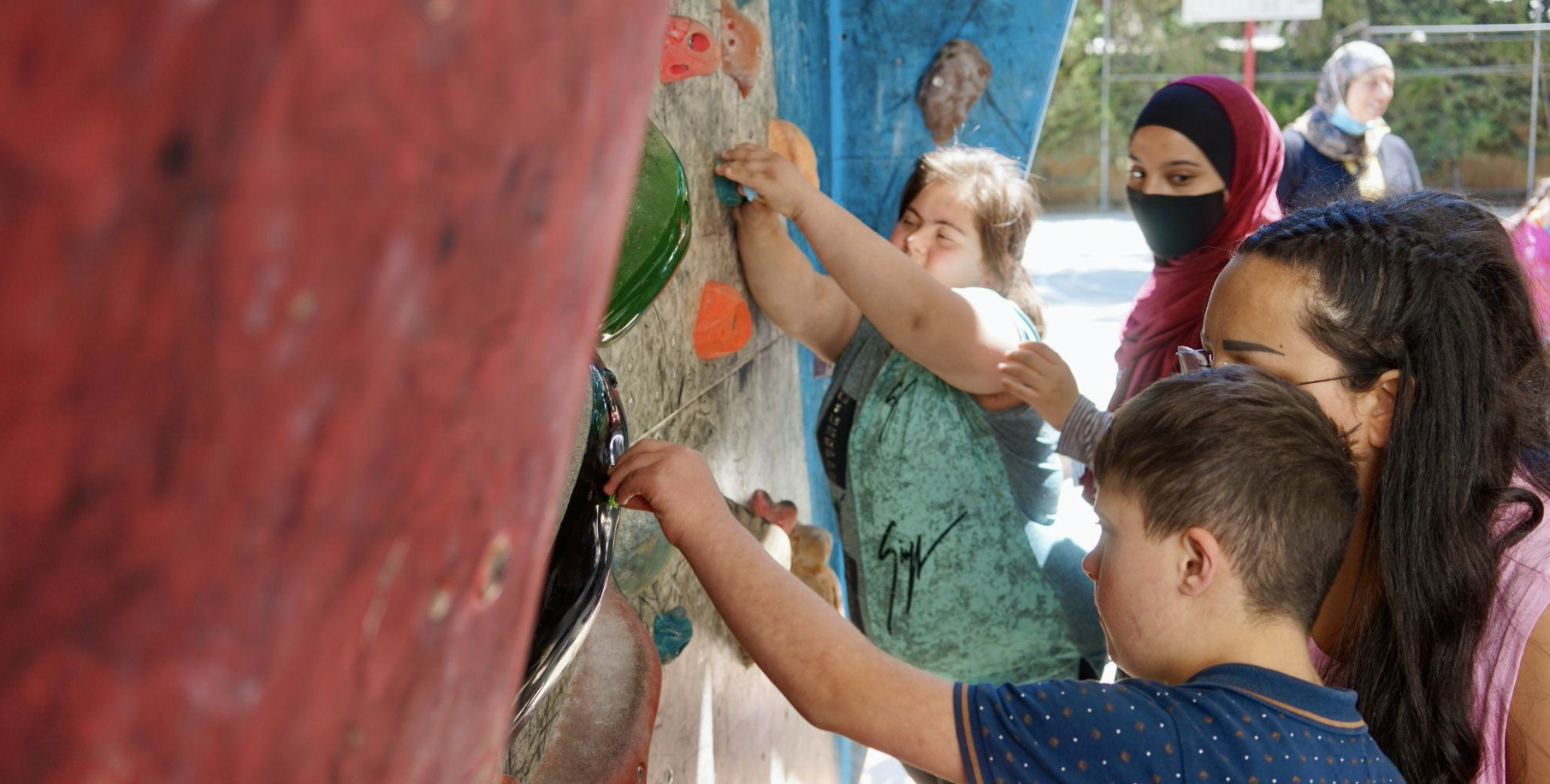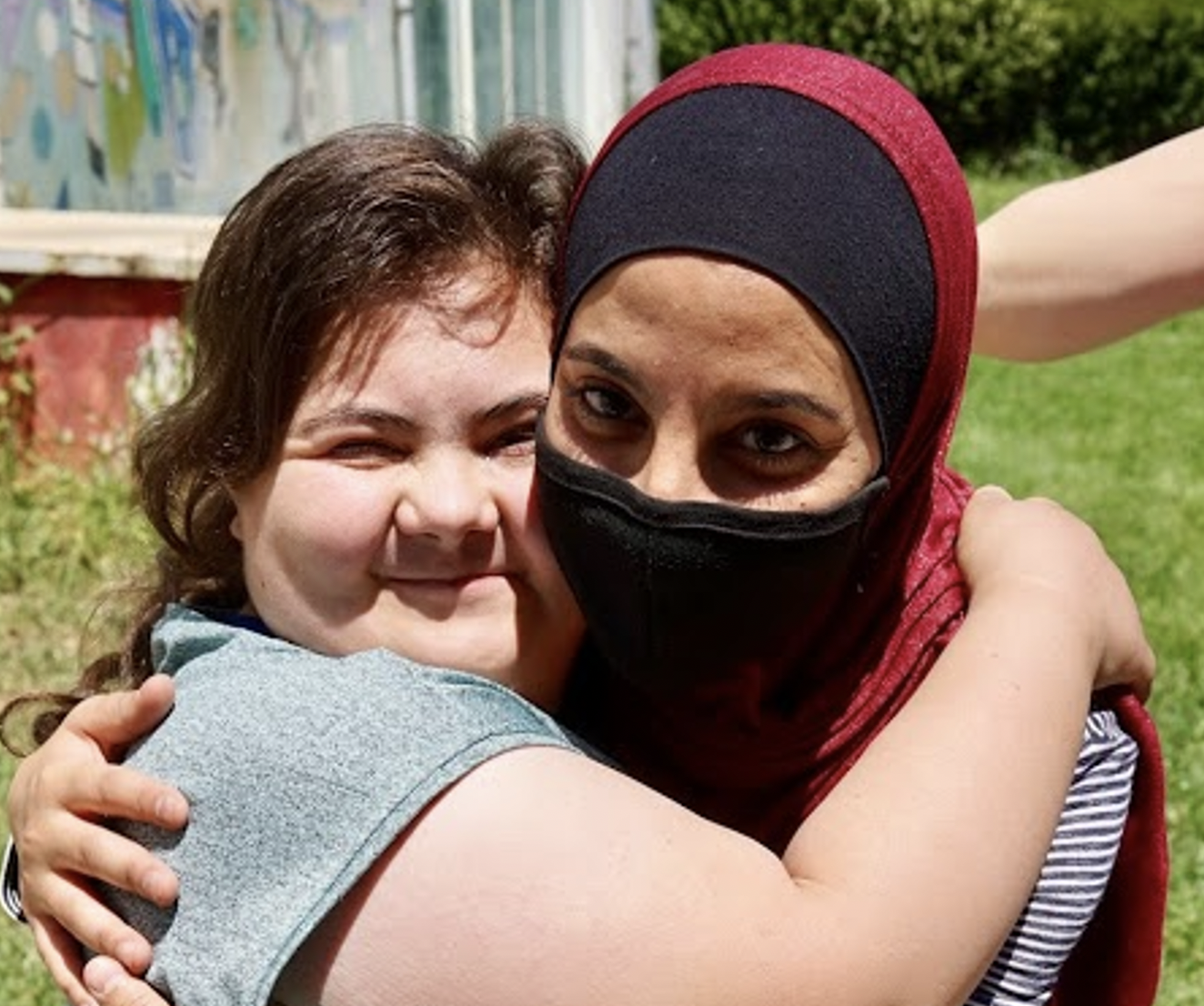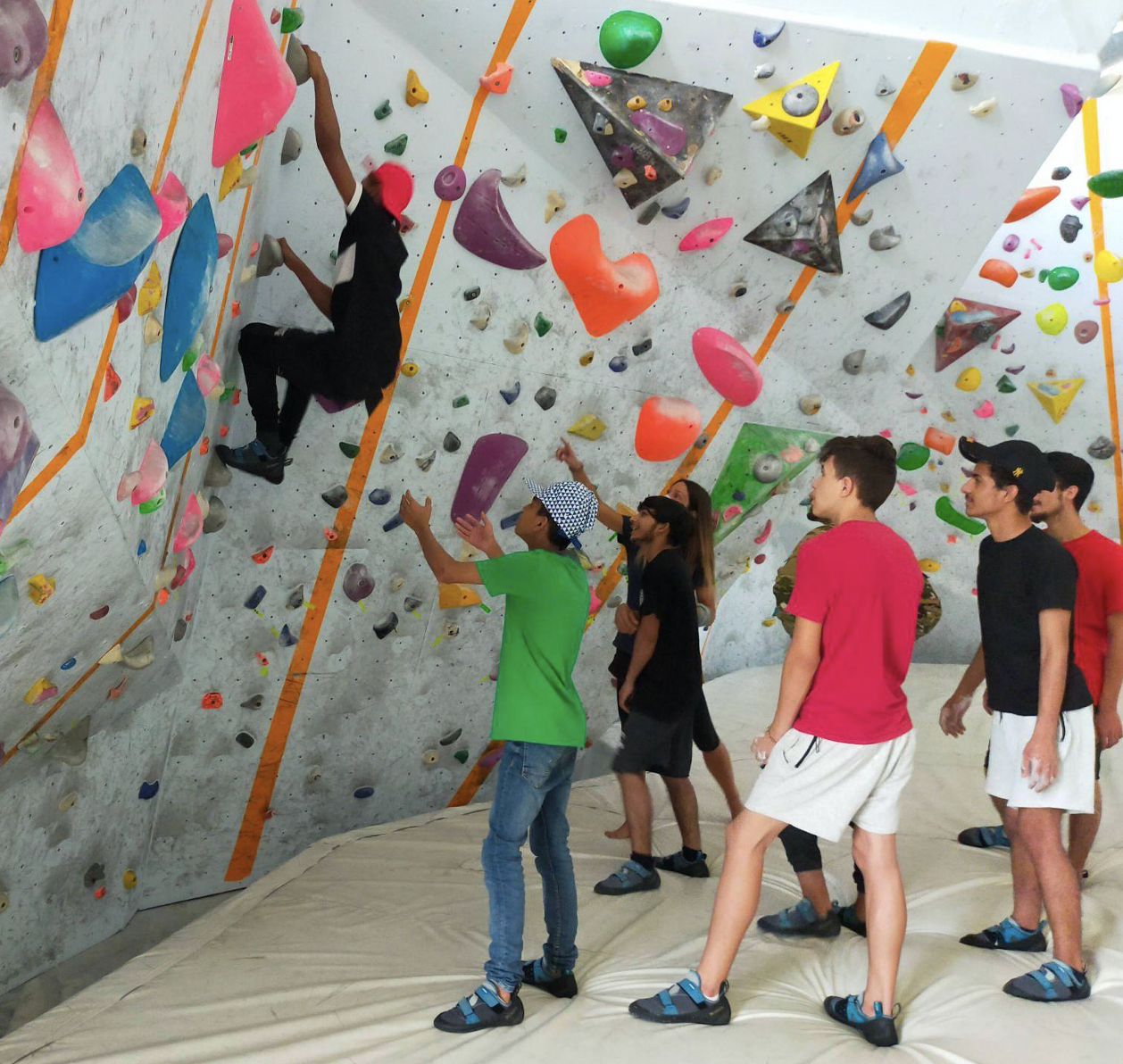
Olympics In Focus: ClimbAID promotes mental health & supports children with disabilities
July 30, 2021
In recognition of the Tokyo 2020 Olympic Games, we are taking a special focus on sport for development organizations who are making change in their communities through new or newly reintroduced Olympic sports.
This week, we are highlighting sport climbing and therefore caught up with Beat Baggenstos, Founder and Director of ClimbAID which operates in Lebanon, Greece and Switzerland. In 2020 they were shortlisted for the Beyond Sport Global Award for Health and Well-Being.
Founded in 2016 in Switzerland, ClimbAID, brings the joy of climbing to marginalised communities affected by war, poverty and displacement. Through the sport and other activities, they are on a mission to build inclusive communities, improve mental well-being and address social issues through projects focused on displaced youth in Switzerland, Lebanon and Greece.
According to UNHCR, the UN Refugee Agency, there are currently 82.4 million displaced people around the world including refugees, asylum seekers and internally displaced persons.
“There’s a growing body of research demonstrating the value of climbing as a means to address depression, anxiety and trauma,” says Beat. “As a non-competitive, goal-oriented activity, climbing builds confidence and self-esteem and - unlike many other popular sports - physical strength, fitness and gender are not exclusionary barriers to entry.”
Besides many private individuals - including professional climbers Nina Caprez, Hazel Findlay and Fred Nicole - who support ClimbAID’s projects, the non-profit is also supported by Swiss outdoor brand Mammut, bouldering gym Minimum, outdoor retailer Transa and Refugio Kalandraka from Rodellar.
Sport Climbing is one of the new sports that is taking place in the Tokyo 2020 Olympic Games and will include three separate events: speed climbing, bouldering and lead climbing. Beat is hopeful that the Games will encourage greater support for ClimbAID’s work and wants to see it rise above exhibition.
"The spotlight of the Olympics helps us a lot in raising awareness of climbing as a sport and ClimbAID's cause. Yet climbing is so much more than a global competition and a mega-spectacle. Climbing is a way of life. It's therapy, it’s belonging to a community and it’s a way to reconnect with nature.” For millions of children struggling with the trauma of war, displacement and poverty, these things couldn’t be more important.
Since 2017, ClimbAID has been running its “Climbing for Peace” program in Lebanon's Bekaa Valley, from which more than 2000 children and young people from both the local population and the refugee community have benefitted so far. Their latest project, "ClimbABILITY", provides sessions for children with disabilities, helping to tackle the stigma and prejudice which they commonly face.

(Nazek and Ainaa at a ClimbABILITY session in Lebanon)
Refugees and migrants are one of the world’s most vulnerable populations. And of the 22.5 million refugees worldwide, an estimated 7.7 million have disabilities. Around half a million of which have an Intellectual Disability (ID) - the most common developmental disability.
Beat shared a touching anecdote from program participant Nazek, a girl with down-syndrome. She exceeded her height limits for the first time and was greeted by huge applause from the crowd of children and volunteers who cheered her on and encouraged her.
“As she grabbed her target hold, the group cheered and applauded with excitement. Nazek slowly climbed down grinning from ear to ear and hugged our Syrian volunteer Ainaa.”
Climbing offers a motor-based therapy to complement the general lack of fine and gross motor skills often experienced by children with disabilities, as well as improving interpersonal skills. With the ClimbABILITY program, children climb alongside their siblings, as well as young Syrian and Lebanese volunteers, strengthening their sense of community and fostering self-confidence.

(PAME PANO!-session at OAKA Climbing Gym in Athens)
“I am really happy today. I climbed the boulder problem that I couldn’t do the last time. This is like life. If there’s a will, there’s a way”, said Nasradin from Afghanistan. ClimbAID’s project, PAME PANO! launched in June in Athens, Greece. The project targets unaccompanied refugee children from asylum shelters, whose mental health has been hit particularly hard by the measures against COVID-19. Like all its projects, PAME PANO! sessions focus on developing transferable skills applicable to participant’s daily lives, such as teamwork, trust, communication, problem-solving, leadership and conflict resolution.
The sessions take place at a wall located within Athens’ iconic OAKA Olympic Stadium, which holds added symbolism for PAME PANO! participants. Beat hopes that by bringing climbing to the Olympics and a whole new audience, it will become a source of inspiration for ClimbAID’s community.
“We were very happy to raise EUR 9'000 for the first of three cycles of PAME PANO! that allows us to reach 46 unaccompanied refugee children (3 cycles = 140 participants). As we are now implementing the 1st cycle, we continue to fundraise in order establish PAME PANO! as a permanent program in Athens and reach more unaccompanied refugee children.”
ClimbAID will continue to work on “inclusivizing” their activities, with the goal to include 5% participants with disabilities across all projects. “In order to expand the [ClimbABILITY] program, we'll be working hard on securing the necessary funds to reach more children with disabilities in our target area Central Bekaa as a tool to bring about positive change on a physical, psychological and social level.”
You can learn more about ClimbAID here. Also, make sure to watch our 2020 Beyond Sport Global Award Campaign interview with Beat here.
Sport Climbing at Tokyo 2020 begins 3 August, you can view the schedule here.